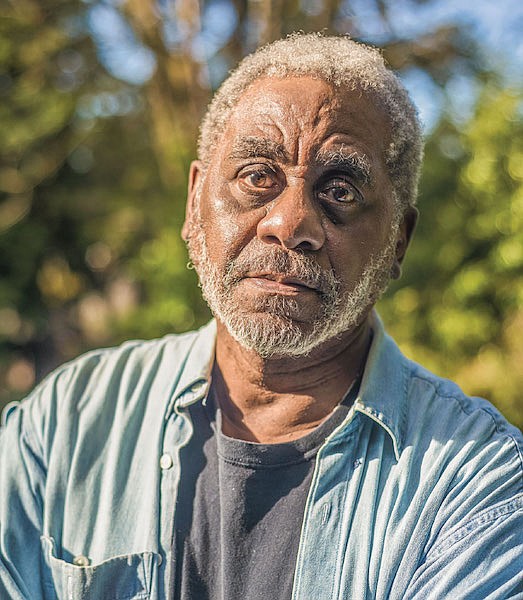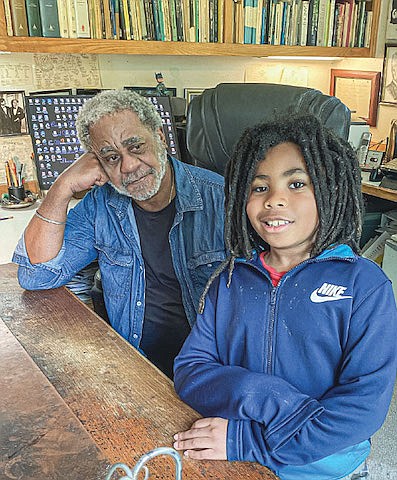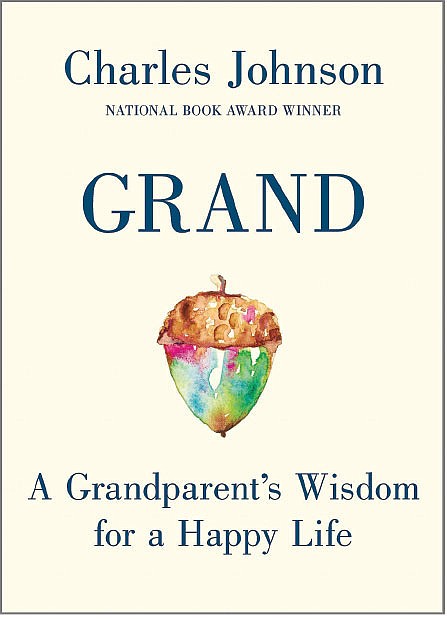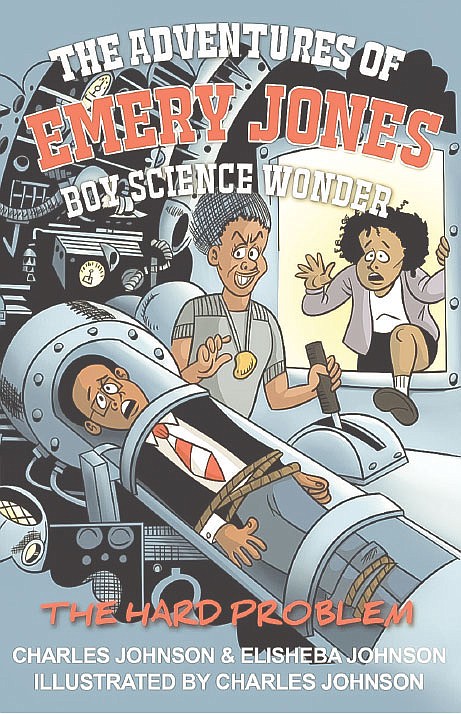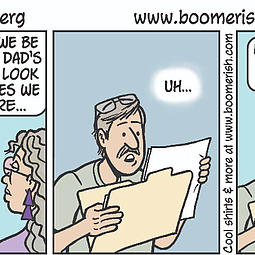The Grand Charles Johnson: Notable author muses on ‘the art of living’ in his book ‘GRAND: A Grandparent’s Wisdom for a Happy Life’
July 1, 2020 at 12:00 a.m.
GRAND is a new book reflecting on the joys of being a grandparent. Written by Seattle’s own Charles Johnson—National Book Award winner, MacArthur Genius Fellow and University of Washington professor emeritus—it has been described as a warm, inspiring collection of wisdom and life lessons that grandparents and parents alike will cherish. “And of course it’s for our grandchildren, too, when they’re old enough to read and understand its contents,” says Dr. Johnson.
In the book, Johnson presents advice to his grandson and other children of his generation through “ten fertile and essential ideas for the art of living.” He offers the thoughts “tentatively and with great humility”—admitting that “grandfatherly advice is as plentiful as blackberries.”
Still, who wouldn’t sit up and take notice of a new book by the celebrated Dr. Johnson. GRAND is his 25th book. His 1990 novel, Middle Passage, a retelling of the slave narrative that deeply impacted modern audiences, won the National Book Award.
Dr. Johnson began his career as a political cartoonist and illustrator in the 1960s and published his first novel, Faith and the Good Thing, in 1974. He earned a doctoral degree in philosophy, attracting accolades, awards and international attention for his work, including the honor of a postage stamp carrying his portrait.
Dr. Johnson says GRAND was inspired by an essay he wrote for 3rd Act magazine, a local publication for seniors. He tells us that one of his greatest pleasures is watching his grandson Emery discover the world around him.
Emery, it seems, considers that his grandfather’s study—his esteemed, accomplished, scholarly grandfather’s cluttered study—is really his office, a place to play video games on his grandfather’s computer, to write and draw, to do schoolwork and practice music. He “regales me with stories about himself and his friends...a friend of mine calls him my ‘mini-me,’” Johnson tells us in his 3rd Act essay.
That same office was designed by two architects to be Johnson’s workspace, a place to contemplate and ponder, to write and draw while surrounded by literature in floor-to-ceiling bookshelves. It is a place for meditation (and also includes “grown-up toys to delight an old sci-fi and comic book fanboy like me,” says Johnson). It contained everything he needed each day to be inspired.
“But eight years ago,” writes Johnson in the introduction to GRAND, “my grandson Emery was born,” and Dr. Johnson found a new reason to be inspired.
“I watch in wonder as he, a beautiful and brilliant boy who feels at home in a room of books and artistic tools, takes over my workspace for his projects...”
GRAND is not the first time that Emery took centerstage in a book by Johnson. “[Emery] knows that the main character in the middle grade series of books I coauthor with his mother, The Adventures of Emery Jones, Boy Science Wonder, is named after him. He tells me what he thinks should happen to Emery Jones in the books to come...”
In GRAND, Dr. Johnson paints a picture of Emery as bright and curious, creative and confident.
Readers will also learn about Johnson’s own humble heritage.
“I was never as confident and self-assured as this kid growing up in a home of very educated, creative people,” he writes in GRAND. “On the contrary, my hardworking father only went as far as the fifth grade. In the 1920s South Carolina, his own father insisted that the six boys in the family leave school to help him on his farm (the six girls, my aunts, were allowed to stay in school). And my mother? She was a housewife with a high school education, but she loved reading and art...
“Nevertheless, mine was a blue-collar, working-class background— summer jobs hauling garbage in sweltering heat at nineteen when I first began to train in Asian martial arts; and before that when I was in high school a holiday job working the night shift until dawn at a conveyor belt at Rand McNally Co. in Skokie, Illinois, slapping glue on Physician’s Desk Reference books.”
He recounts the story of when every penny his hardworking father had saved to buy the family’s first home was stolen. “After that loss, I watched him work three jobs in the early 1960s to support my mother and me— a day job doing construction, an evening job as a night watchman, and on weekends he logged hours helping an elderly white couple fix up their house...”
He describes his father as a proud, quietly pious man who “paid for my college education, expecting me to acquire the professional diploma that circumstances had prevented him from getting.
“And he taught me, I truly believe, how to work—indeed, to see whatever I did, regardless of how humble the labor, as being a portrait of myself. And never to stop until my goal was realized.”
When he was young, Johnson would “eagerly probe” his relatives “for every gory detail” about their personal experiences with racism, knowing his aunts and uncles in the South had “ample horror stories to tell,” but they “simply shook their heads and said, ‘It’s better to leave that behind.’ ”
One great uncle, however, did tell his life story, which made a lasting impact on Johnson. It is a story of self-made success that became a tale Johnson himself told his children over and over again. It demonstrated how Johnson’s family elders made personal sacrifices to prepare their kids for the opportunities they themselves were denied.
Thinking of the past and watching Emery in the present makes Johnson sometimes worry about his future. “Do I have any ‘wisdom,’ based on my seventy-one years of experience, worth sharing with him? Are there any perennial truths that I—as a writer, artist, academically trained philosopher, Buddhist practitioner, martial artist and former journalist and college professor—can impart to Emery that might make his journey through life easier and more rewarding?”
The answers can be found in the pages of GRAND.
But giving helpful advice is not a one-sided activity, says Johnson, evidenced by the day that Emery marched into his study, “long dreadlocks swinging behind him,” and climbed on top of his grandfather’s desk “holding a fistful of playing cards.” Pokémon.
“Emery throws down his card. Somehow his card beats mine, which he tosses into a discard pile.
“I lost?”
“Grandpa,” he says patiently, “you’ll get the hang of this. Trust me. Just keep playing and I’ll help you.”
Dr. Johnson’s chapters in GRAND end with a final, tenth lesson for Emery and all the children of his generation: “I want them to understand that there is no greater experience that we can have than love, for that is the wellspring from which all good things flow.”
GRAND was written before the pandemic. In a recent interview with Vanity Fair Johnson said, “As we shelter at home together, Emery and I talk about these changes in our lives that one day he will recognize as being caused by one of the most transformative events in modern history. I hope this will teach him how every life is precious, and how we should see each day of life as a gift.”
Sections of this article are excerpted from “GRAND: A Grandparent’s Wisdom for a Happy Life” and are used with permission by HarperCollins/Hanover Square Press.
